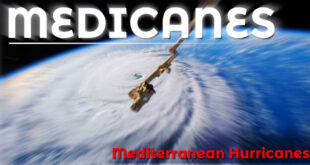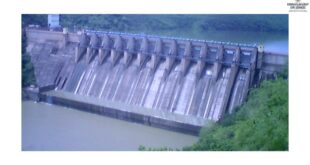Salient features of world’s physical geography.
Extreme heat has plagued the Mediterranean for weeks.
What are marine heat waves?
- A marine heat wave (MHW) is an extreme weather event.
- It occurs when the surface temperature of a particular region of the sea rises to 3 or 4 degree Celsius above the average temperature for at least five days.
- MHWs can last for weeks, months or even years
Problems of high sea temperatures
- Marine creatures are in danger of suffocating.
- Gases like oxygen and carbon dioxide dissolve better at colder temperatures, so that means the warmer the water, the less oxygen is available to breathe.
- Conversely, higher temperatures also cause an increase in metabolism, which in turn means animals have to breathe even more than usual.
- That combination also heightens the risk of death by starvation for marine life.
- The rise in temperature accelerates metabolism, and the organisms need more food to maintain this metabolic rate.
- Algal blooms are more common in hotter waters too.
- Such blooms can further deplete oxygen levels and produce toxins harmful for fish, marine mammals and birds.
- High water temperatures are most harmful for animals living at the bottom of oceans, lakes or rivers.
- These benthic species include corals, mussels, sponges, starfish and plants like sea grasses, and are often attached to rock or solid ground.
- They can’t migrate when it gets too hot.
- Scientists observed mass deaths of benthic species along thousands of kilometers of Mediterranean coastline between 2015 and 2019.
Benefits to some species:
Jellyfish bloom:
- Jellyfish are thriving because of higher temperatures, as well as nutrient run-off from farms and sewage.
- Overfishing and loss of fish habitat mean the jellyfish have few or no predators.
- When currents push the animals together, the Mediterranean turns into a crowded jellyfish hotspot.
Invasive species:
- The sea also hosts around 1,000 invasive species — the highest number in the world.
- While this is not directly linked to climate change or rising temperatures such conditions clearly favor species introduced from warmer seas.
- Alien species can have a major impact on ecosystems.
- For instance, invasive Rabbitfish native to the Indo-Pacific and Rea Sea feed on seaweed and have reshaped the habitat of the eastern Mediterranean.
- Underwater deserts have replaced dense seaweed forests.
Impact of Mediterranean heat wave on humans:
Effect on fishing activities:
- Warming seas are already affecting fishing activities in the area.
- Fishermen are catching fewer familiar species and instead are finding more invasive fish which they have difficulty selling.
Impact on coastal ecosystem:
Habitat loss could also lead to an overall decline in fish populations, while disappearing seagrass means coasts will be more exposed to future storms.
Impact on tourism:
This could also have a knock-on effect for tourism because divers will be less likely to visit an impoverished underwater landscape.
Way forward:
One thing all the researchers agree on is that to save the Mediterranean Sea habitat, humans must stop emitting greenhouse gases.
 Chinmaya IAS Academy – Current Affairs Chinmaya IAS Academy – Current Affairs
Chinmaya IAS Academy – Current Affairs Chinmaya IAS Academy – Current Affairs



